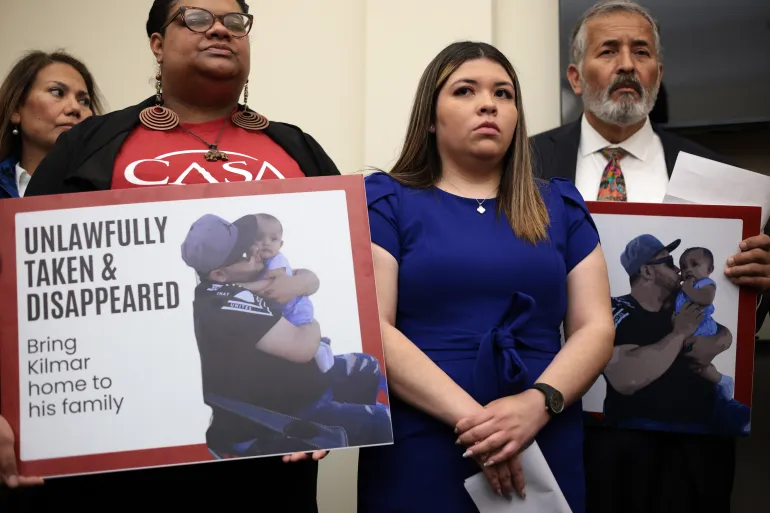In a rare and notable decision, the US Supreme Court has ordered the return of Kilmar Abrego Garcia, a Salvadoran man who was wrongly deported to El Salvador despite legal protections. The court’s ruling came after the Department of Justice admitted that Garcia’s removal from the US was a result of an “administrative error.”
Garcia, 29, had been living in Maryland under protected legal status since 2019. He was deported last month and placed in El Salvador’s high-security CECOT prison, a facility known for detaining suspected gang members. His removal was part of a broader immigration crackdown under former President Donald Trump, which targeted more than 200 individuals, most accused of being members of the Venezuelan gang Tren de Aragua. However, no credible evidence tied Garcia to gang activity.
Lawyer Simon Sandoval-Moshenberg, representing Garcia, praised the Supreme Court’s decision, saying it showed that “the rule of law prevailed.” Garcia’s deportation had already been challenged in lower courts, which had ordered the US government to return him by a specific deadline. That order was initially delayed when the government requested an emergency ruling.
Despite the Trump administration’s assertion that Garcia was affiliated with the MS-13 gang—a claim rejected by the lower courts—the Supreme Court ultimately ruled that the government must “facilitate” his release from the Salvadoran prison and handle his immigration case as though he had never been deported.
What was the government’s argument for keeping Garcia in El Salvador?
The US government claimed it no longer had jurisdiction over Garcia once he was deported and argued that the court’s intervention was “unprecedented and indefensible.” It also claimed Garcia was a gang member, though that was unsubstantiated.
The court clarified that although the initial deadline for Garcia’s return had passed, the rest of the lower court’s order still stands, subject to the necessary diplomatic considerations. Liberal justices Sonia Sotomayor, Elena Kagan, and Ketanji Brown Jackson supported the ruling, saying there was “no basis in law” for Garcia’s removal.
The ruling comes as criticism mounts over the US and El Salvador’s handling of deportees. Human Rights Watch urged the US to provide transparency on the detainees sent to CECOT and denounced the harsh treatment they face, calling it “cruel.”
In a separate case, the Supreme Court recently allowed continued deportation of Venezuelan migrants under an old wartime law, showing the complicated legal landscape surrounding US immigration policy.
Tips and Recommendations:
- Migrants facing deportation should stay in close contact with legal aid services to avoid wrongful removals.
- Legal teams should monitor errors and inconsistencies in government immigration records.
- Advocacy groups are encouraged to press for accountability and transparency in deportation practices.
- Families of deported individuals should reach out to human rights organizations like Human Rights Watch for support.
This decision marks a significant moment in immigration law, offering a glimpse of hope for those impacted by rushed or flawed deportation procedures.

